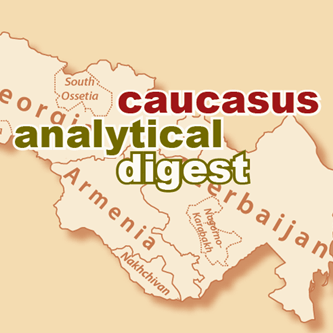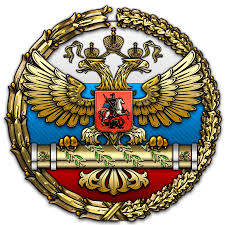(By Andrey Makarychev, Tartu, and Alexandra Yatsyk, Kazan) – This article provides an overall introduction to this issue of the Caucasus Analytical Digest, describing the nature of Russia’s relationships with Georgia, Armenia, and Azerbaijan in light of the Ukraine crisis.
■ One of the most immediate effects of the crisis in Russian–Ukrainian relations for the South Caucasus is the growing realism in regional politics. As a mainstream Russian author suggests, with power (geo)politics back, “responsible stakeholders in Tbilisi, Yerevan and Baku have realized that should there be serious warfare in the region, no international institutions will be powerful enough to stop it, nor will any great European powers be ready for a head-on military collision to defend their clients’ interests,” to put it simply, countries of the “near abroad” cannot expect any external help if they face security problems with Russia. What stems from here is another argument widely articulated by Kremlin loyalists after the crisis in Ukraine: the time for multi-vectoral policies is over, and most post-Soviet countries are supposed to get ready to make their—deeply political—choices, each one coming with a political price.
Evidently, Russia intends to force the West to recognize the inclusion of eastern Europe and the south Caucasus into the Russian sphere of interests. Yet in the south Caucasus, Russia faces a reality substantially different from that in eastern Europe, with the key distinction being a limited space for the “Russian world” ideas. In fact, Moscow can use the “Russian world” only as an element of its policies toward South Ossetia and Abkhazia—two break-away territories that nicely fit in the wider Russian strategy of supporting separatism and secessionism as a political tool. This makes Russia develop its policies toward Georgia, Armenia, and Azerbaijan as a combination of economic and military security instruments, which often brings controversial results. [More]
——–
Also in this issue:
■ The Ukraine Crisis: Repercussions on Georgia (By Kornely Kakachia, Tbilisi)
■ The Ukrainian Crisis and Implications for Azerbaijan (By Anar Valiyev, Baku)
——–
See the full issue | PDF | The South Caucasus and the Ukraine Crisis, No. 67–68, Dec. 23, 2014
© Caucasus Analytical Digest
Recommended
Book chapter by Andrey Makarychev and Andrei V Belyi: “Regional Institutions and Energy Market: Systems, Societies, Communities” in States and Markets in Hydrocarbon Sectors, January 2015
Video: “The Ukraine-Russia Conflict: What Role for the EU?” Panel discussion with Andrey Makarychev and Olexiy Haran at the Institute of World Policy, Rome, December 22, 2014
Video: “Russian power projection” Panel discussion with Andrey Makarychev at the Baltic Defence College, Estonia, December 16, 2014
Book chapter by Andrey Makarychev and Alexandra Yatsyk: "The Four Pillars of Russia’s Power Narrative," The International Spectator: Italian Journal of International Affairs, Dec. 12, 2014
Book chapter by Andrey Makarychev and Stefan Meister: “The Modernisation Debate and Russian-German Normative Cleavages,” October 24, 2014
Book chapter by Andrey Makarychev and Alexander Kornilov: “Russia’s Soft Power in the South Caucasus: Discourses, Communication, Hegemony,” in Religion, Nation and Democracy in the South Caucasus,” October 23 2014
Video (in Spanish): “La crisis de Ucrania: ¿Vuelta de la guerra a Europa?” Panel discussion with Andrey Makarychev at the European Council on Foreign Relations, September 25, 2014











